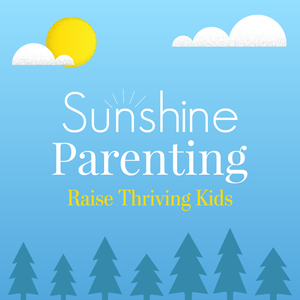
Sunshine Parenting
Audrey Monke
- 31 minutes 13 secondsEP. 188 [Tough Twenties] Series Wrap Up with Gretchen (age 30) & Owen (age 20)
In the final episode of the Tough Twenties series, Gretchen (age 30), Owen (age 20), and I have a conversation about building identity capital in your twenties and how various experiences, whether professional or personal, shape our stories and can influence future opportunities.
Owen shares his experience as a beach lifeguard, which, although unrelated to his planned career path, provided him with valuable life skills and discipline. Gretchen, nearing the end of her doctoral program, discusses how her camp counseling experience has been instrumental in her teaching career and her current research.
We also touch on the impact technology and social media are having on our lives. Both Owen and Gretchen share steps they've taken to manage their screen time, recognizing the importance of being present in the moment and the potential negative effects of excessive phone use. They share strategies such as deleting apps, setting screen time limits, and creating phone-free times during the day.
The conversation highlights the importance of being mindful of our social media usage and the displacement effect it can have on our lives. The time we spend on screens is time we're not spending doing other important things - like building closer relationships and learning new skills. We also discuss the potential future of parenting in relation to technology and the importance of modeling healthy habits for the next generation.
During this series, we've reflected on the challenges and rewards of the twenties and have emphasized the importance of embracing this decade as an important developmental time of growth and learning.
I hope this series has provided encouragement and guidance for young adults navigating their own winding paths.
Do you enjoy Sunshine Parenting? Please take a moment to give my podcast a rating and review on iTunes.
Listen to more episodes from the Tough Twenties series.
Thank you for being part of the Sunshine Parenting community!
Audrey "Sunshine" Monke
4 January 2024, 4:00 pm - 25 minutes 46 secondsEP. 187: [Tough Twenties] The Defining Decade - Meg Jay, PhD
In the Tough Twenties series, I’m interviewing young adults, answering questions submitted by listeners, and sharing resources and tips related to thriving in young adulthood and beyond. Whether you’re an adolescent or a young adult in your twenties, or you’re parenting a young adult, I know you’ll be encouraged by this series.
In this episode, I chat with Meg Jay, PHD, a developmental clinical psychologist who specializes in twentysomethings. She is the author of The Twentysomething Treatment: A Revolutionary Remedy for an Uncertain Age, Supernormal: The Secret World of the Family Hero and the cult classic The Defining Decade: Why Your Twenties Matter and How to Make the Most of Them Now. Her books have been translated into more than a dozen languages and her work has appeared in the New York Times, Wall Street Journal, Harvard Business Review and on NPR, BBC and—maybe most important for her audience—TikTok.
We discuss the positive impact The Defining Decade has had on thousands of young adults as well as a few topics covered in the book, including building "identity capital."
Get in touch
Submit an anonymous question or comment for the series
Resources
Download my “Ready for Adulthood Checklist”
The Defining Decade: Why Your Twenties Matter — And How to Make the Most of Them Now
21 December 2023, 4:00 pm - 31 minutes 23 secondsEP. 186: [Tough Twenties] Being an Excellent Employee
In the Tough Twenties series, I'm interviewing young adults, answering questions submitted by listeners, and sharing resources and tips related to thriving in young adulthood and beyond. Whether you're an adolescent or a young adult in your twenties, or you're parenting a young adult, I know you'll be encouraged by this series.
In this episode, I chat with summer camp directors Andy and Alison Moeshberger. Each year they interview, hire, and train two hundred young adult counselors, so they have a lot of great insights on the skills and traits that lead to success at work for young adults.
We discuss:
The benefits of working at a summer camp, such as gaining responsibility, decision-making skills, and leadership opportunities. They also discuss the accelerated learning opportunities, the rapid feedback system, and the development of relationship skills due to the face-to-face communication and round-the-clock community and communication.
The importance of being coachable, be receptive to feedback and view feedback as an opportunity for improvement rather than a personal attack.
How the best employees are flexible, open minded, and willing to work through the discomfort of challenges and learning new skills.
The mindset shift that young adults need to make when transitioning from a school environment to a professional setting. They note that in school, competition and high grades are often emphasized, whereas in the working world, soft skills and relational skills are most valued.
Overall, they emphasize the benefits of working at a summer camp, such as the accelerated learning opportunities, rapid feedback system, and development of soft skills.
Get in touch
Submit an anonymous question or comment for the series
Resources
Download my "Ready for Adulthood Checklist"
Mentioned on the Podcast
The Defining Decade: Why Your Twenties Matter -- And How to Make the Most of Them Now
3 Reasons to Choose a Job at Camp Instead of a Summer Internship
Why Being a Camp Counselor is the Best Summer Job
The Greatest Internship: 6 Critical Skills Counselors Develop at Camp
7 December 2023, 4:00 pm - 30 minutes 12 secondsEP. 185 [Tough Twenties] Myths that Might be Holding You Back from Living Your Best Life
In this episode, I share about some myths that can hold you back from living your best life. It's easy to get caught up in the pressure to conform and meet expectations of others. We can find ourselves striving for success based on societal standards or seeking validation from those around us. To live our best lives, it's essential to explore our unique strengths and follow our own path.
During this episode I share about five myths many adults base their lives on, truths that counter those myths, and what you can do now to start living your best life. It took me a long time to learn these lessons, and I really wish someone would have talked with me about them when I was launching into adulthood.
Myths that Might Be Holding You Back
-
Everyone (or certain people) need to approve of our job/career for it to be “successful.”
Truth: Some of the older adults that you think of as being successful are not happy with their lives and regret not pursuing something they were really interested in but didn’t have the same level of prestige/income associated with it.
What to do: Chase your strengths/interests. Spend time learning about yourself and talk through ideas with a friend or trusted mentor.
Some tools you might use: Enneagram VIA Strengths Four Tendencies Gallup Strengths
-
We have to make really big changes in order to reach our goals.
Truth: The tiny, consistent habits are the way most people eventually reach their goals. This is true for both vocational goals and physical goals.
“Cramming on something for a couple of hours once in a while as just a slow, steady progression, a little at a time.
What to do: Break down an impossible-seeming goal and break it down into the tiniest step possible.
Ex: Read one page of a book about a topic you want to learn more about.
-
I need to start really big and do something huge for my first career-type job.
“I want to write a book.”
“I want to start a non-profit organization.”
What to do: Figure out what’s the first, very small step towards XYZ (starting a non-profit in a particular area).
Example first step: Do a Google search of the non-profit food providers in your area.
Example next step: Volunteer a few hours at one of the food providers.
Get an accountability partner!
Brainstorm together
Is this step small enough?
Circle back in a week and report on your first step, discuss your next step.
-
Once I _________, then I’ll be happy.
Truths: We actually miss a lot of the great moments in life when we’re spending all of our thoughts on this thing out there in the future.
It does feel good to accomplish things, but sometimes we feel bad after we reach the goal.
“You’re gonna miss this” song (Trace Adkins)
What to do: Figure out your current “Once I…” statement that you’re believing in too much. What’s something you can replace that with? Like, what is it about your life right now that you’re really enjoying? What are you grateful for in this season?
-
I’ll get to ______ later, when I have more time.
Truth: Regardless of life stage, your time will get filled by things you can’t control but there’s always some discretionary time. Sometimes we’re not aware of it, because we default to spending time doing things that don’t lead to better well-being.
What to do: Recognize that you have the same amount of time as everyone else. Figure out what you want to prioritize and schedule it in.
Cal Newport Deep Life Podcast - Zero Sum Time Budgeting.
One more idea: You can make time more meaningful and things more memorable by putting a little more effort into it.
Laura Vanderkam’s “Effortful Fun”
Power of Moments, Chip Heath & Dan Heath
In conclusion, discovering our unique strengths and path is essential for living a fulfilling and thriving life. It requires us to challenge the myth that we need others' approval or validation for our choices. Instead, we must invest time and effort in self-discovery, exploring our interests, and understanding our strengths. By embracing our uniqueness and following our own path, we can find true happiness and fulfillment. Remember, success is not measured by societal standards but by the alignment between our passions, strengths, and purpose.
Get in touch
Submit an anonymous question for the series
Resources
Download my "Ready for Adulthood Checklist"
23 November 2023, 4:00 pm -
- 33 minutes 22 secondsEP. 184: [Tough Twenties] Creating Community and Connections with Owen, Age 20
In the Tough Twenties series, I'm interviewing young adults, answering questions submitted by listeners, and sharing resources and tips related to thriving in young adulthood and beyond. Whether you're an adolescent or a young adult in your twenties, or you're parenting a young adult, I know you'll be encouraged by this series.
In this episode I'm chatting with my son, Owen, who has just entered into his twenties. We discuss building connections and relationships in young adulthood and how unplugging from technology can help foster those connections. Owen shares his experiences as a sophomore at San Diego State University.
Highlights
Unplug to Connect: Owen suggests that taking breaks from technology and unplugging can be beneficial for establishing and nurturing connections. Unplugging also allows for reflection, goal-setting, and engaging in activities that can lead to shared experiences and stronger connections.
Focus on developing "weak ties" socially, as well (see Meg Jay quote below).
Develop some daily habits including activities like exercising and reading. For reading, you might consider some focused reading on a topic you want to learn more about. You can become an "expert" by reading five books written by five experts in the field.
Take advantage of brain plasticity and learn new skills you're interested in, like learning to play guitar in Owen's case.
Get in touch
Submit an anonymous question for the series
Links & Resources
Download my "Ready for Adulthood Checklist"
Sharing Topic: Highs, Lows, & Buffaloes
"As a result, brain regions that support executive, social, and emotional functions appear to be particularly malleable and responsive to the environment during early adolescence, as plasticity occurs later in development." Read more about brain plasticity during adolescence in Neuroscience News.
“Information and opportunity spread farther and faster through weak ties than through close friends because weak ties have fewer overlapping contacts. Weak ties are like bridges you cannot see all the way across, so there is no telling where they might lead.” The Defining Decade, Meg Jay
Free Guy Movie – Mentioned when Sunshine couldn't come up with the appropriate acronym NPC (non-player character), or what some students seem to act like as they walk across campus with headphones on, heads down, and not interacting with other humans.
16 November 2023, 4:00 pm - 29 minutes 44 secondsEp. 183: [Tough Twenties] Foundational Health Habits with Charlotte, Age 25In the Tough Twenties series, I'm interviewing young adults, answering questions submitted by listeners, and sharing resources and tips related to thriving in young adulthood and beyond. Whether you're an adolescent or a young adult in your twenties, or you're parenting a young adult, I know you'll be encouraged by this series.
In this episode my daughter Charlotte, age 25, and I talk about one area that can be challenging during the transition to adulthood - taking care of health. This episode was motivated by the following listener question:
How do I manage the transition from college to the "real world"?
If you have a question or topic you'd like us to cover on the Tough Twenties series, please submit it here.
"We all are allotted 24 hours in the day, and we're choosing how we spend every one of those hours...What are you doing in some of those hours that you could cut down on slightly?" -Charlotte
Foundational Habit #1: Sleep"Going to bed early is sleeping in for adults." Laura Vanderkam, Why You Need a Bedtime (Harvard Business Review)
"For adults, getting less than seven hours of sleep a night on a regular basis has been linked with poor health, including weight gain, having a body mass index of 30 or higher, diabetes, high blood pressure, heart disease, stroke, and depression." How many hours of sleep are enough for good health? Mayo Clinic
"Experts recommend that adults sleep between 7 and 9 hours a night. Adults who sleep less than 7 hours a night may have more health issues than those who sleep 7 or more hours a night." How Much Sleep is Enough? National Institute of Health
Foundational Habit #2: NutritionEat your breakfast!
Managing blood sugar
Foundational Habit #3: Exercise"Find an exercise routine that you enjoy and that's fun for you." Charlotte
"Call a friend while you're on a walk." Charlotte
"Find something to get your body moving, and if you can be outside and get some fresh air and vitamin D while you're doing that, it's even better." Charlotte
Foundational Habit #4: Manage Alcohol & Drug Use"It's important to evaluate what your relationship with alcohol is." -Charlotte
Alcohol and Young Adults Ages 18 to 25, National Institute of Health
Related Posts & Episodes:Ep. 180: [Tough Twenties] Charlotte, Age 25
Conversations Before College: Honest Talk about Alcohol
[ENCORE] Ep. 124: Promoting Mental Health with Dr. Jess Shatkin
Ep. 56: Off the Clock with Laura Vanderkam
Links:@charchareats (Charlotte's Holistic Health & Wellness Instagram)
9 November 2023, 4:00 pm - 42 minutesEp. 182: [Tough Twenties] Gretchen, Age 29, on Relationships
Navigating dating and romantic relationships - and figuring out how to decide who to commit to and marry- is one of the biggest decisions of the twenties. In this episode, I'm chatting with my daughter Gretchen, age 29, about her romantic relationships in her twenties, what she's learned from her own experiences and her observations and discussion with other young adults, and from the book, The Defining Decade (Meg Jay, PhD).
Get in touch:Submit an anonymous question for the series
Download my "Ready for Adulthood Checklist"
Previous Tough Twenties EpisodesEp. 180: [Tough Twenties] Charlotte, Age 25
Ep. 181: [Tough Twenties] Ready for Adulthood
Links:Choose Wisely: 8 Questions to Ponder Before you say "I Do" (post I read from in this episode)
“Think hard about who you marry. It’s the most important decision you will ever make."David Brooks, Commencement Speech
"My strong advice is to obsess less about your career and to think a lot more about marriage. Please respect the truism that if you have a great career and a crappy marriage you will be unhappy, but if you have a great marriage and a crappy career you will be happy." David Brooks, To Be Happy, Marriage Matters More than Career
The Defining Decade, Meg Jay, PhD
2 November 2023, 3:00 pm - 31 minutes 18 secondsEp. 181: Tough Twenties - Ready for Adulthood
The Tough Twenties series continues with a discussion of skills to work on to be ready for adulthood, a mindset shift for parents and young adults, and how to foster connection and friendships rather than competition.
Resource:In this episode, I share about my "Ready for Adulthood Checklist"
Listener Question:This week I give my response to this listener question, which was submitted on my survey:
"How to see school/work/social gatherings as a common ground of building friendship rather than a competition of who is better (performance, looks, etc.)"
Get in touch:Submit an anonymous topic request or question for the series
Download my "Ready for Adulthood Checklist"
Related:Ep. 127: The New Adolescence with Christine Carter, Ph.D.
[ENCORE] Ep. 159: The Social Dilemma
Why Summer Camp May be the Secret to a Longer Life
Ep. 171: Julie Lythcott-Haims talks about YOUR TURN: How to be an Adult
Ep. 170: Adulting with Emma Liberman
Self-Reflection Ideas:26 October 2023, 3:00 pm - 35 minutes 40 secondsEp. 180: Tough Twenties - Charlotte, Age 25
It is not an easy time to be a young adult. In this new series on Sunshine Parenting, I'll interview young adults, answer questions submitted by listeners, and share resources and tips related to thriving in young adulthood and beyond. Whether you're an adolescent or a young adult in your twenties, or you're parenting a young adult, I know you'll be encouraged by this series.
In this first episode of the Tough Twenties series, I'm chatting with my daughter Charlotte, age 25. We talk about Charlotte's early twenties and the pivots she's made so far as she navigated a college transfer, a challenging backpacking trip across Costa Rica, and graduating during COVID. We talk about what Charlotte's discovered about herself and her career goals.
Get in touch:
Submit a question you'd like covered in the series
Free Download: "Ready for Adulthood Checklist"
Related:Ep. 171: Julie Lythcott-Haims talks about YOUR TURN: How to be an Adult
Ep. 170: Adulting with Emma Liberman
[ENCORE] Ep. 85: Grit is Grown Outside the Comfort Zone (PEGtalk)
Links:The Defining Decade, Dr. Meg Jay
Using Lifestyle-Centric Career Planning To Pursue A Life You Love (YouTube Video by Cal Newport)
Why Women Don’t Apply for Jobs Unless They’re 100% Qualified (Harvard Business Review)
19 October 2023, 7:30 pm - 40 minutes 26 secondsEp. 179: Middle School Superpowers with Phyllis Fagell
HAPPY CAMPERS: 9 Summer Camp Secrets for Raising Kids Who Become Thriving Adults is now available on Audible!
Visit Sunshine Parenting for more episodes & resources.
Subscribe for resources and ideas for happier, more connected families.
In Episode 179, I chat with Phyllis Fagell about her amazing book, MIDDLE SCHOOL SUPERPOWERS: Raising Resilient Tweens in Turbulent Times.
ABOUT THE BOOK When things don’t go right for a tween, it often feels HUGE: failing a test, being left out of a group chat, struggling with body image or identity, getting cut from a team. Middle school is often one of the rockiest times in a child’s life, even without today’s added challenges: a pandemic, the fear of school violence, divisive politics, and the scourge of social media. It’s filled with physical changes, social pressures, transitions in family, friend, and school dynamics, and countless new experiences that can be overwhelming and scary. In MIDDLE SCHOOL SUPERPOWERS: Raising Resilient Tweens in Turbulent Times (Hachette Go, August 1), Phyllis Fagell—a school counselor, Washington Post education column contributor, and the author of the definitive guide to this age group, Middle School Matters—offers a practical, evidence-based, and compassionate guide for parents and educators to help today’s tweens navigate these always-formative years. ABOUT THE AUTHOR Phyllis L. Fagell is a licensed clinical professional counselor, a certified professional school counselor, a frequent contributor to The Washington Post and other national publications, and author of Middle School Matters and Middle School Superpowers. She is a school counselor at Sheridan School in Washington, D.C. and provides therapy to children, teens, and families at The Chrysalis Group Inc. in Bethesda, Maryland. Phyllis also speaks and consults on issues relating to parenting, counseling, and education.3 August 2023, 9:58 pm - 35 minutes 3 secondsEp. 178: Connecting More Deeply with Gretchen Ruch
HAPPY CAMPERS: 9 Summer Camp Secrets for Raising Kids Who Become Thriving Adults is now available on Audible!
Visit Sunshine Parenting for more episodes & resources.
Subscribe for resources and ideas for happier, more connected families.
In Episode 178, my daughter Gretchen and I share a few tips for connecting more deeply with friends, co-workers, family, and people we just met.
Have a bold, specific purpose for every gatheringIn Priya Parker's The Art of Gathering (which I recently listened to on a two-day binge), Parker talks about the importance of being really clear on why we're gathering - whether it's a work meeting, a birthday celebration, or a walk with a friend or two - and to have a specific, bold purpose for every gathering we host.
"Celebrating a birthday" or "Having a weekly check-in meeting" are not bold purposes, but are what Parker calls "categories." She makes a compelling argument that as hosts we often spend so much time and energy on food, decor, and logistics but we neglect determining why we are gathering. And that purpose or why is what makes the event memorable.
Here are some examples I've come up with with for events with more specific purposes: Having dinner together to celebrate the past year and share our best tip for the next one. Sharing our projects for the next week and setting up accountability and encouragement partners. Telling stories about ourselves that others don't know so that we can get to know each other better. Celebrating a birthday by bringing (and reading aloud) notes of what we appreciate about the person.
Parker notes that it's important to tell guests the specific purpose before the gathering, so as not to put anyone on the spot. A simple inclusion on the invitation will suffice.
How are you really doing?In this episode of Greg McKeown's podcast, he talks about simple tweaks on the normal "How are you?" question that help get us beyond the usual, "fine," or "great!" He suggests instead using either,
How are you really doing?
or a three-part series: How are you doing on the surface? How are you doing in the middle? How are you doing deep down?
Ask (or provide) Great QuestionsOne of the most important skills for making and keeping friends is asking questions. I've written and talked extensively on the topic (see links below).
In my book Happy Campers I provide a resource list of questions that are great to use with groups of kids (including in your own family). These are questions we provide to our camp counselors as we train them to connect with their campers and help campers connect with one another. You can read more in Connection Through Questions & access the free PDF here.
Even with people we are close to, there are still things we don't know about them. Consider using good questions - and great listening - to grow deeper connections.
Audrey & Gretchen's other chatsEp. 161: An Inside Look at Sunshine's Parenting
Ep. 135: Advice & Ideas from Teachers During COVID-19
LinksThe Art of Gathering, Priya Parker
The Greg McKeown Podcast Ep. 157: See Through People's Masks
Essentialism: The Disciplined Pursuit of Less, Greg McKeown
Ep. 40: Frientimacy with Shasta Nelson
Camp Secret #1: Connection Comes First (Free audio chapter from Happy Campers)
Connection Through Questions (PDF resource from Happy Campers)
36 Questions to Get Closer to Someone You Love
Making Memories at Mealtime (Goodwin University)
20 January 2023, 4:00 pm - More Episodes? Get the App
Your feedback is valuable to us. Should you encounter any bugs, glitches, lack of functionality or other problems, please email us on [email protected] or join Moon.FM Telegram Group where you can talk directly to the dev team who are happy to answer any queries.
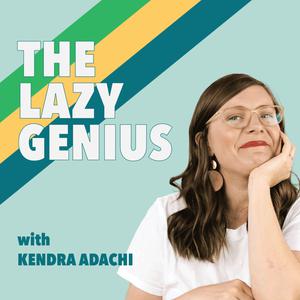 The Lazy Genius Podcast
The Lazy Genius Podcast
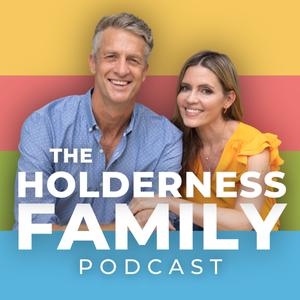 The Holderness Family Podcast
The Holderness Family Podcast
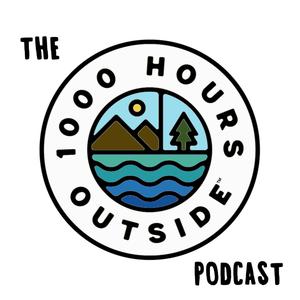 The 1000 Hours Outside Podcast
The 1000 Hours Outside Podcast
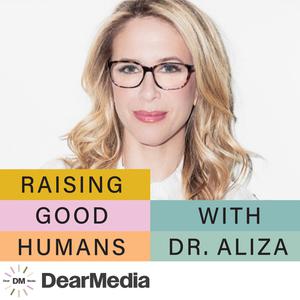 Raising Good Humans
Raising Good Humans
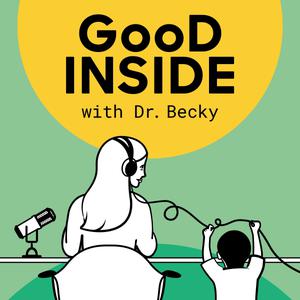 Good Inside with Dr. Becky
Good Inside with Dr. Becky
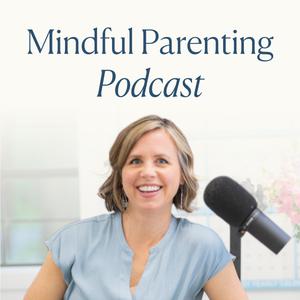 Mindful Parenting: Breaking the Cycle of Reactive Parenting & Raising Kind, Confident Kids
Mindful Parenting: Breaking the Cycle of Reactive Parenting & Raising Kind, Confident Kids